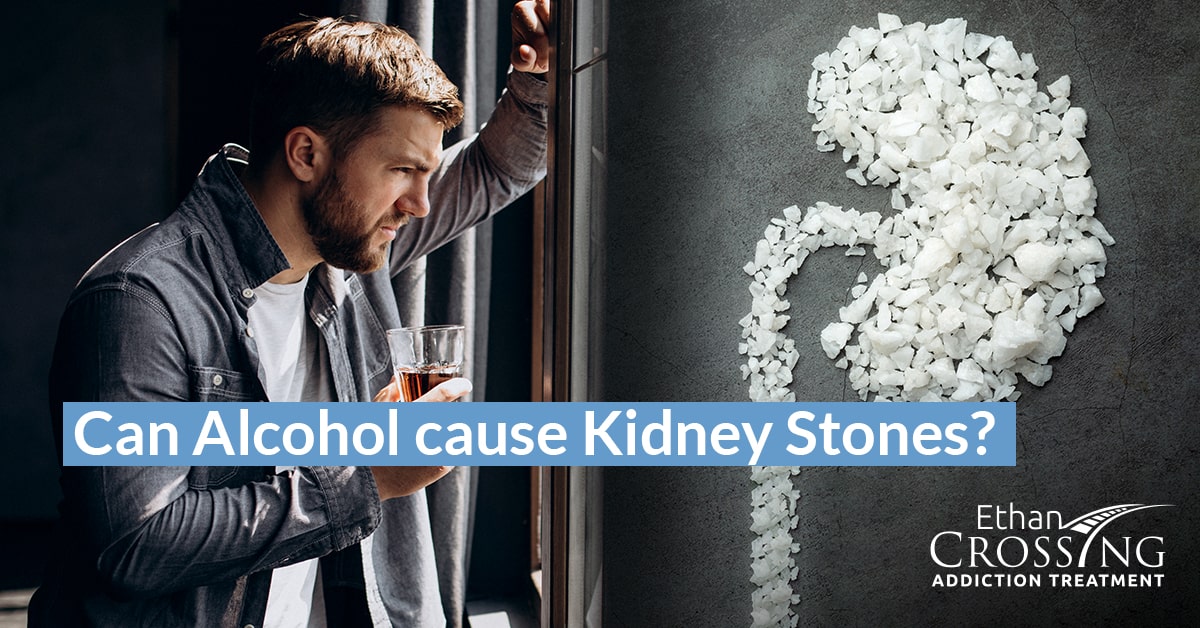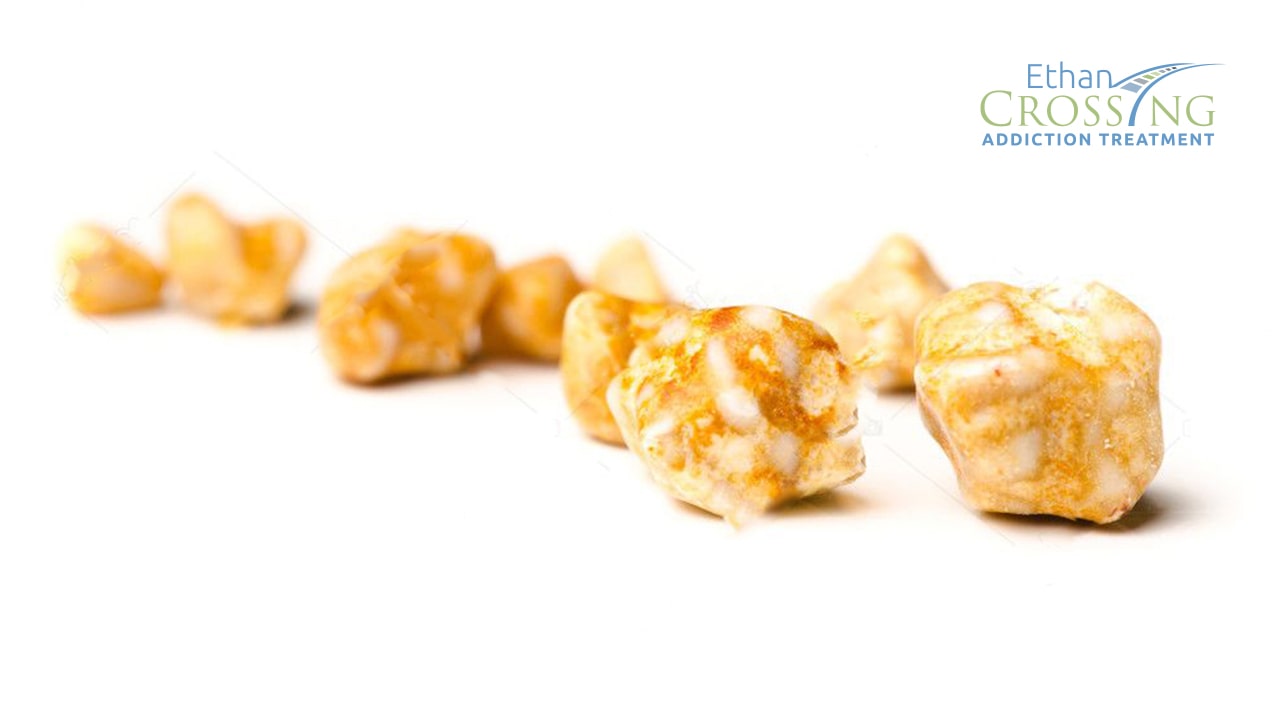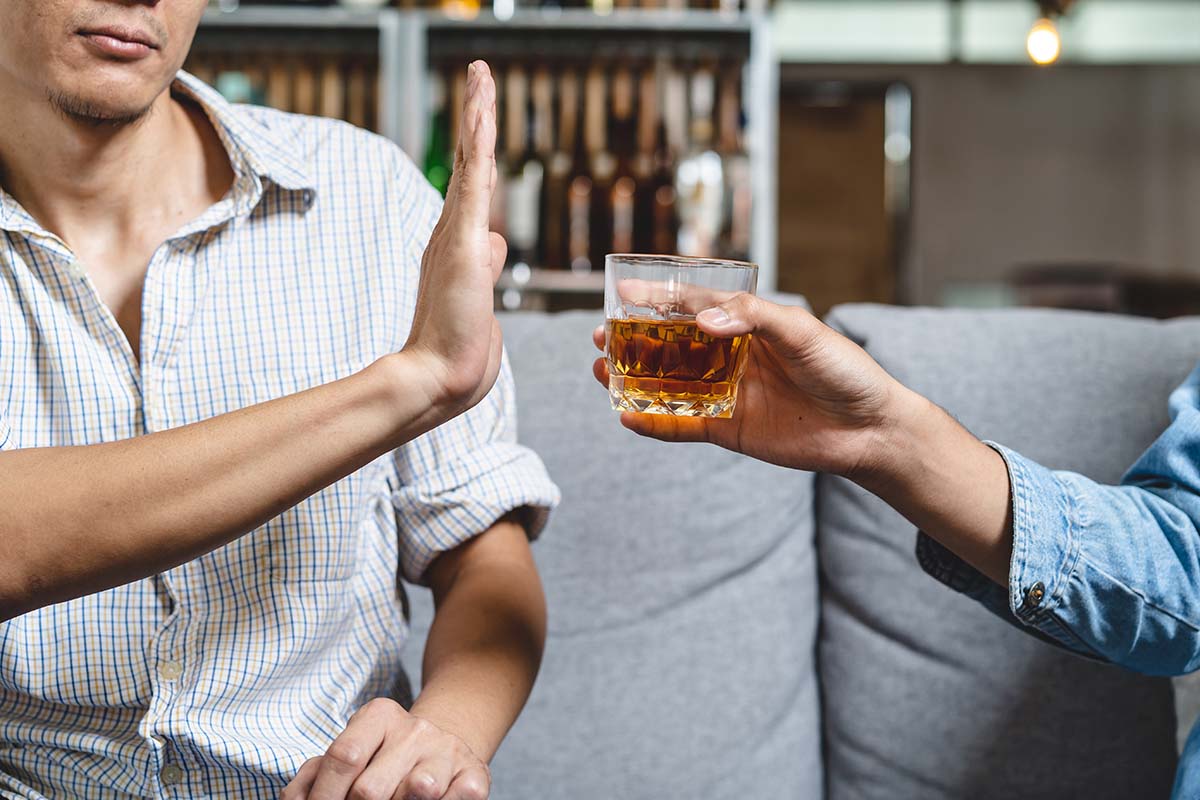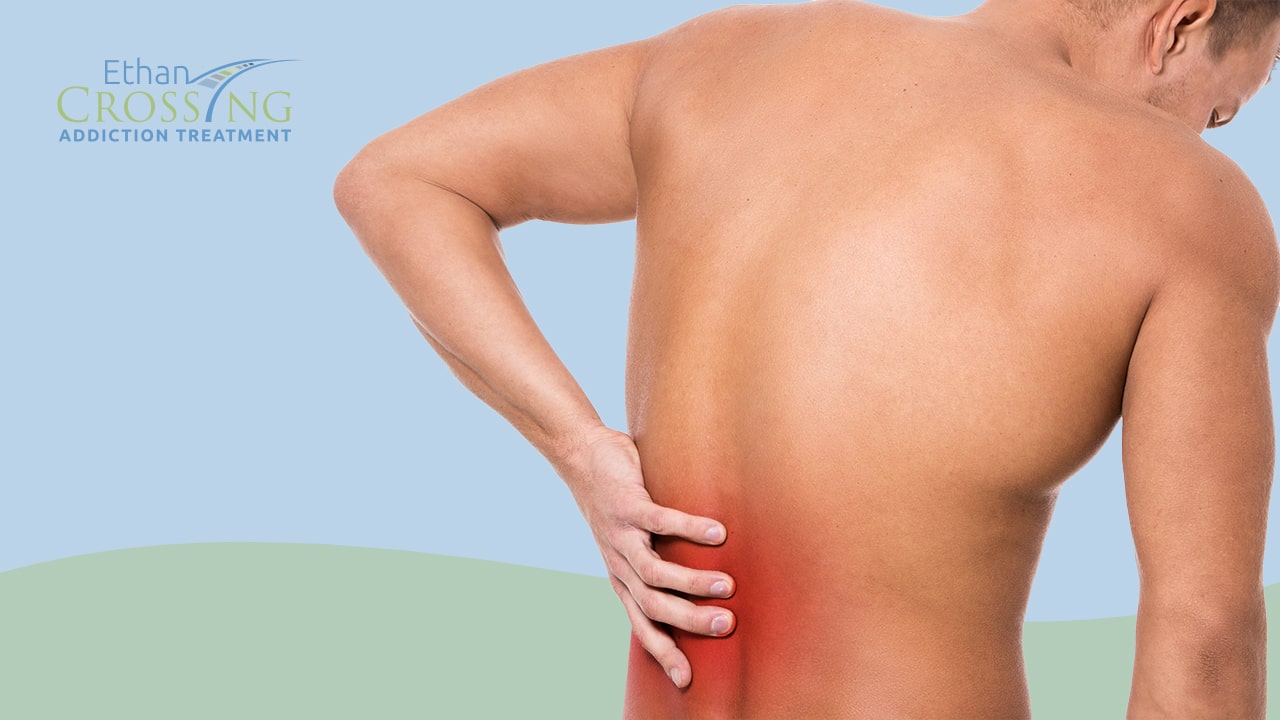Kidney stones are known for the intense pain they can cause. They develop when there’s too much waste material and not enough liquid. Together, these two end up forming crystals (known as “stones” in this case). While there are many causes, alcohol can contribute directly to their formation.
Table of Contents
What is the Role of the Kidneys?
The primary role of the kidneys is to filter the blood of toxins and turn the waste into urine. They also regulate the body’s electrolyte and water levels, keeping them constant. And finally, they secrete hormones important to proper bodily function.
When your kidneys stop working properly, harmful toxins and waste products can build up, leading to various side effects and dangerous conditions such as developing chronic kidney disease.
What are Kidney Stones?
Urine consists of dissolved salts and minerals. Your kidneys filter these salts and minerals out of your body through your urine. When they fail to do this, these waste byproducts build up in your urine, leading to the formation of kidney stones.
A kidney stone can be as small as a grain of sand, meaning you can pass it without feeling anything or even knowing about it. But a kidney stone can also become large enough to block urine flow, making it difficult to pass and severe pain.
Types of Kidney Stones
Calcium Stones
The most common kind of kidney stones is calcium oxalate and calcium phosphate. About 80% of kidney stones are from calcium.
This form of kidney stone is typically a result of calcium combining with oxalate in the urine. A severe lack of calcium causes calcium oxalate. It can also occur if a person is not getting enough water in their systems.
Uric Acid Kidney Stones
These occur when the acidic content in your urine gets too high, forming uric acid crystals. Uric acid stones make up 5 to 10% of all stones. Organ meats and shellfish have high concentrations of purines. Purine intake results in higher production of monosodium urate, which can end up forming stones (in certain conditions).
Some forms of alcohol (specifical beer) have a high concentration of purines. This can result in the formation of kidney stones after alcohol usage. This is why alcohol and kidney stones may be more related than many think.
Struvite stones
Also known as infection stones, struvite kidney stones are less common than previously. These mainly occur due to urinary tract infections and develop very quickly. Struvite stones can also form when urine is too basic or alkaline. This type of kidney stone typically emerges from upper urinary tract infections.
Cystine stones
Cystine stones are much rarer than the other kinds and can be re-occurring. Cystine kidney stones occur due to a rare disorder, cystinuria – when too much cystine is in the urine. Cystine is an amino acid found in certain foods and is one of the building blocks for protein. These stones are usually co-occurring and can get stuck in the kidneys, other parts of the urinary tract, and the bladder.
Are You Ready To Stop Your Alcohol Addiction Today? Contact us today to find the support you need to be successful.
What Causes Kidney Stones?
Low Urine Volume
This mainly happens due to dehydration. Low urine volume means less fluid in urine, leading it to become concentrated and dark-colored. The upshot of this lack of fluids means minerals and salts do not get dissolved as quickly, developing kidney stones.
Highly Acidic Urine
Some dietary factors could create kidney stones. Diets high in animal protein and lacking fruits and vegetables raise acid levels in urine. This can result in calcium (particularly oxalate) and uric acid stones.
Symptoms Of Kidney Stones
The most prominent symptom of kidney stones is severe pain and cramping in the back and side. This pain often moves to the abdomen and groin, coming and going in waves as your body tries to remove the stone. The National Kidney Foundation reports that as many as one out of every ten people will pass a kidney stone at some point in their lifetime.
Other symptoms may include:
- Feeling a persistent and intense urge to urinate
- Pink, brown, or red-colored urine, often foul-smelling
- Nausea or vomiting
- Fever or chills
Treatment For Kidney Stones
Treatment for kidney stones at a minor level is to hydrate as much as possible. This forces your body to break the rock down and make it easy to pass. If the pain is enough to warrant a trip to the emergency room, medications are given to widen the passageway and encourage the stone’s passing. Pain medication may also be administered to make you more comfortable.
Alcohol And Kidney Stones
Even though there is no direct causality between alcoholism and kidney stones, alcohol still impacts the formation of kidney stones. Drinking excess alcohol increases the risk of kidney stones.
Excessive alcohol intake can also lead to severe dehydration, one of the many reasons behind stone formation in the kidney. Calcium oxalate stones, in particular, can form when someone is dehydrated. Consistent alcohol consumption can create a pattern of dehydration while increasing the chance of kidney stones.
The Answer: Can Alcohol Cause Kidney Stones?
Certain aspects of excessive alcohol consumption can easily lead to kidney stones. Over time, alcoholism can wreak havoc on the body and the mind through kidney stones, disease, mental health problems, financial problems, and other adverse effects.
Why Do My Kidneys Hurt After Drinking Alcohol?
The purpose of the kidneys is to filter waste from the body, and proper water intake is required to replace this waste. Alcohol dehydrates you, which makes it difficult for this to happen. On top of that, you are intoxicated, which also strains your kidneys. This is one reason why you may feel pain after that glass of wine or beer.
The best way to avoid this pain is to go through alcohol detox and stop drinking altogether.
Should I Drink Alcohol If I Have Kidney Stones?
If you already have kidney stones, drinking alcohol may worsen your condition. Drinking alcohol can cause kidney stones to move around faster, causing increased pain in the body.
How to Prevent Alcohol-Related Kidney Stones
The best way to prevent kidney stones from alcohol use is to stop drinking alcohol. Drinking plenty of water and staying hydrated will also help reduce your risk.
Treatment for Alcohol Use Disorder (AUD)
There are a variety of resources available for those suffering from AUD. Getting addiction treatment regarding alcohol abuse could help prevent more alcohol-related diseases. Mental health treatment approaches (such as behavioral therapy) can help address the underlying behaviors that drive some to drink. This could be followed up with alcohol rehab and further treatment.
Mutual support groups such as Alcoholics Anonymous (AA) can provide a strong support network for addiction treatment for alcohol misuse. If you are struggling with alcohol use, contact us today to learn how to get help.














